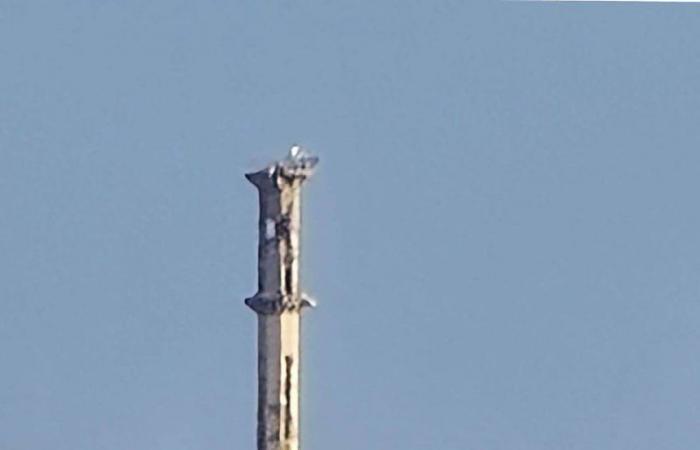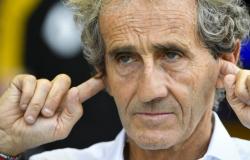
– Advertisement –
Hezbollah issued a statement Monday evening confirming that it had conducted a “initial defensive response” against the Israeli military site of Ruwaysat al-Alamlocated in the busy hills of Kafr Shuba. This action comes after a series of repeated violations by Israel of the terms of the ceasefire announced at dawn on November 27, 2024.
A response to multiple violations
In its statement, Hezbollah accuses Israel of having carried out airstrikes, shooting of civilians et aerial incursions over several regions of Lebanon, including the capital, Beirut. These actions resulted in human losses, with several deaths and injuries among Lebanese civilians.
Despite filing complaints with relevant authorities to end these violations, Hezbollah says its diplomatic efforts have remained unsuccessful, prompting this response.
The group specifies that this attack constitutes a “defensive warning” and emphasizes that responsibility for the escalation lies with Israel, due to its aggressive actions in violation of the cessation of hostilities agreements.
The Ruwaysat al-Alam site: a strategic position
The targeted site, Ruwaysat al-Alam, is located in the hills of Kafr Shubaan area occupied by Israel in southern Lebanon. This sector, considered strategic, is frequently mentioned in the tensions between Israel and Hezbollah
Since the entry into force of a ceasefire between Israel and Hezbollah on November 26, violations of the agreement have increased, sparking criticism from the Lebanese authorities, Hezbollah and certain international actors. While Israel rejects the accusations of the United States and France, claiming to apply the terms of the agreement, tensions on the ground continue to worsen, Hezbollah fired 2 rockets at uninhabited areas in the north of 'Israel as a sign of warning.
Israel denies accusations and justifies its actions
Israeli Foreign Minister Gideon Saar on Monday rejected criticism from the United States and France that Israel was violating the terms of the truce. Sa'ar said on .
Sa'ar stressed that Israel will not tolerate a return to the situation before October 6, 2023, a date marking a major escalation of the conflict. Israel maintains that its strikes and incursions are aimed at preventing the transfer of Hezbollah weapons from Syria and neutralizing potential threats.
Lebanese reactions: Mikati, Berri and Hezbollah denounce the violations
Lebanese interim Prime Minister Najib Mikati met on Monday with the co-chairman of the ceasefire monitoring committee, General Jasper Jeffers. Mikati stressed the need to prevent violations and called for the withdrawal of Israeli troops from the Lebanese territories they still occupy.
Lebanese Parliament Speaker Nabih Berri accused Israel of committing more than 54 violations in less than a week, including airstrikes, bombings and incursions into border villages. Berri, who played a key role in mediating the ceasefire, said “the aggressive actions of the Israeli occupying forces represent a blatant violation of the terms of the agreement.”
Hezbollah, weakened but still operational after the death of its leader Hassan Nasrallah in an Israeli strike, called these violations “a clear warning”. The Shiite organization has so far avoided any military response, although it remains on alert in the face of Israeli provocations.
Violations on the ground: Israeli strikes, restrictions and advances
Since the start of the ceasefire, several incidents have been reported, including Israeli airstrikes on civilian areas and troop movements in southern Lebanon. Among the major incidents:
- A wounded Lebanese soldier in Hermel by an Israeli drone strike.
- State security agent killed in Marjaayoun during a drone strike.
- Bombings on Khiam and other border villages, where displaced residents still cannot return.
- Travel restrictions imposed by Israelwith a curfew from 5 p.m. to 7 a.m. south of Litani.
Israel also advanced into areas where its troops were not present before the ceasefire, including in Markaba, Khiam and Maroun al-Ras, destroying local infrastructure, which intensified Lebanese criticism.
The supervisory committee: a crucial but contested role
The ceasefire monitoring mechanism is chaired by the United States, with the participation of France, UNIFIL, Lebanon and Israel. Major General Jasper Jeffers and US envoy Amos Hochstein, who played a key role in mediating the truce, are temporarily leading this committee.
However, Nabih Berri expressed doubts about the committee's effectiveness in dealing with Israeli violations. “Where does the committee position itself on these ongoing violations? “, he asked, while calling for immediate intervention to ensure compliance with the terms of the truce.
International reactions: calls for mutual respect
French Foreign Minister Jean-Noël Barrot urged Israel and Hezbollah to respect the terms of the ceasefire, in a phone call with Gideon Saar. The United States has also expressed displeasure over Israeli drone flights over Beirut and airstrikes in southern Lebanon.
A British diplomat told Al-Jadeed that London was intensifying contacts with the United States, France and the Lebanese parties to ensure the implementation of the agreement. The UK also underlined its commitment to logistically supporting the Lebanese army in the south, where Lebanese forces are to deploy in accordance with the terms of the truce.
A fragile truce and uncertain prospects
Despite growing criticism, Israel insists its actions are necessary to maintain security and prevent Hezbollah from rearming. However, repeated violations of the truce risk further weakening the situation, as Hezbollah remains under pressure to respond.
The first phase of the truce provides for a cessation of hostilities for 60 days, with a withdrawal of Hezbollah fighters north of the Litani and a withdrawal of Israeli troops north of their border. The implementation of these commitments will be decisive in avoiding a resumption of hostilities.
– Advertisement –





